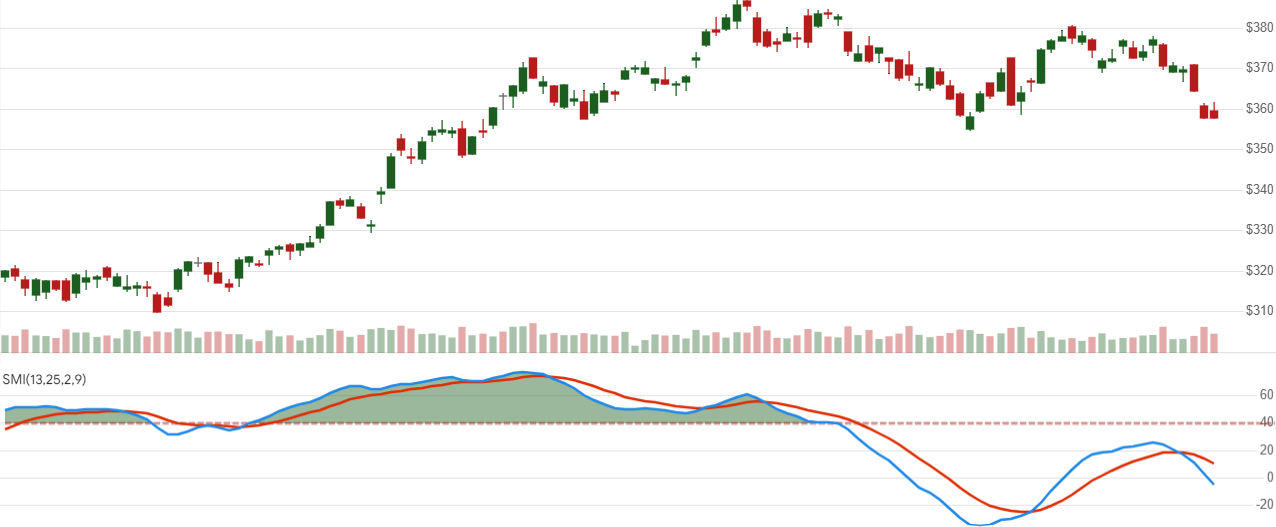Stochastic Momentum Index (SMI)
Created by William Blau, the Stochastic Momentum Index (SMI) oscillator is a double-smoothed variant of the Stochastic Oscillator, depicted on a scale from -100 to 100. [Discuss] 💬

// C# usage syntax (standard)
IEnumerable<SmiResult> results =
quotes.GetSmi(lookbackPeriods, firstSmoothPeriods,
secondSmoothPeriods, signalPeriods);
Parameters
lookbackPeriods int - Lookback period (N) for the stochastic. Must be greater than 0. Default is 13.
firstSmoothPeriods int - First smoothing factor lookback. Must be greater than 0. Default is 25.
secondSmoothPeriods int - Second smoothing factor lookback. Must be greater than 0. Default is 2.
signalPeriods int - EMA of SMI lookback periods. Must be greater than 0. Default is 3.
Historical quotes requirements
You must have at least N+100 periods of quotes to cover the warmup and convergence periods.
quotes is a collection of generic TQuote historical price quotes. It should have a consistent frequency (day, hour, minute, etc). See the Guide for more information.
Response
IEnumerable<SmiResult>
- This method returns a time series of all available indicator values for the
quotesprovided. - It always returns the same number of elements as there are in the historical quotes.
- It does not return a single incremental indicator value.
- The first
N-1periods will havenullSMI values since there’s not enough data to calculate.
⚞ Convergence warning: The first
N+100periods will have decreasing magnitude, convergence-related precision errors that can be as high as ~5% deviation in indicator values for earlier periods.
SmiResult
Date DateTime - Date from evaluated TQuote
Smi double - Stochastic Momentum Index (SMI)
Signal double - Signal line: an Exponential Moving Average (EMA) of SMI
Utilities
See Utilities and helpers for more information.
Chaining
Results can be further processed on Smi with additional chain-enabled indicators.
// example
var results = quotes
.GetSmi(..)
.GetSlope(..);
This indicator must be generated from quotes and cannot be generated from results of another chain-enabled indicator or method.